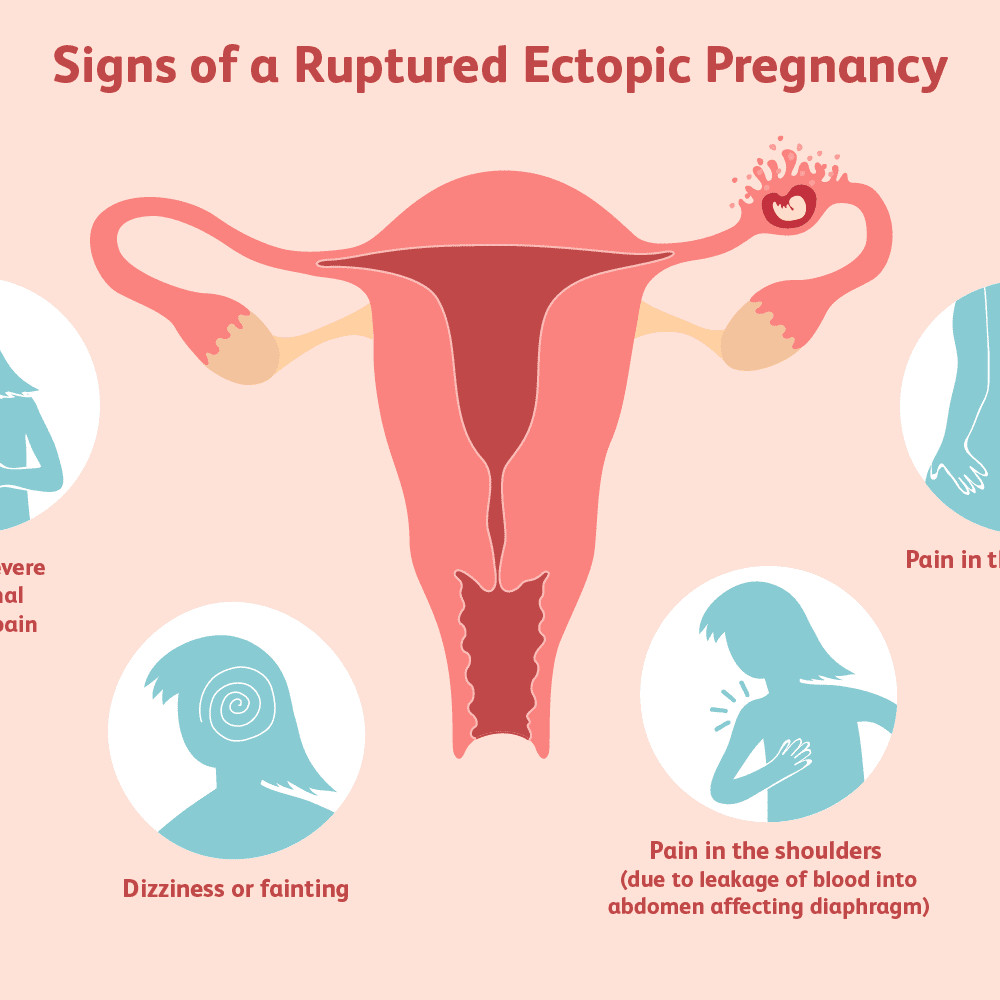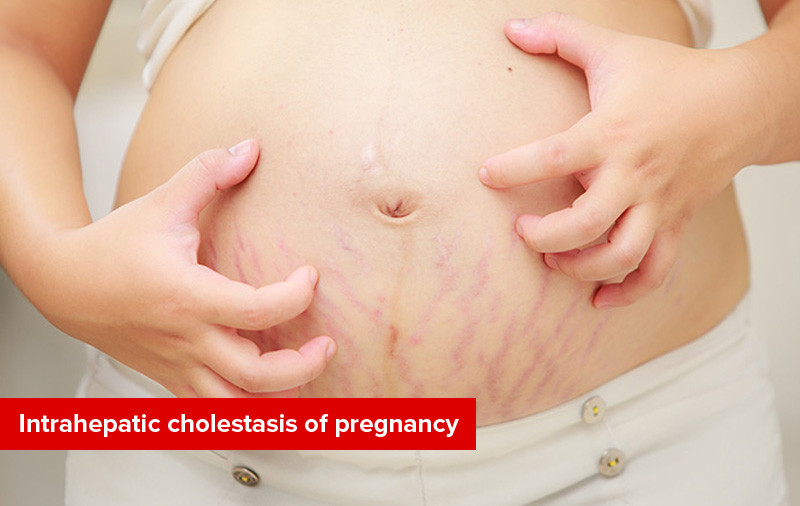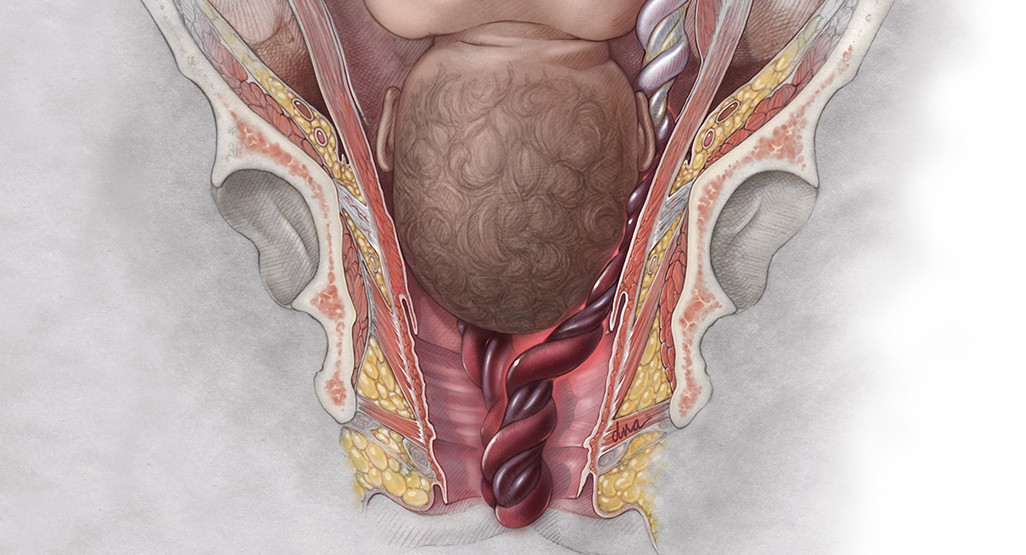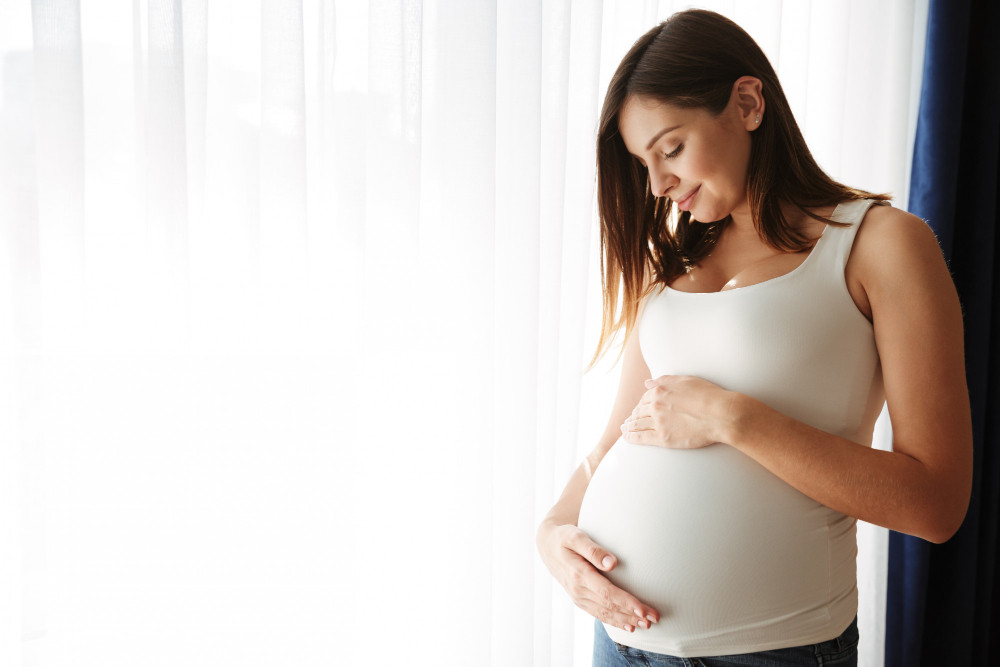Definisi
Kehamilan Ektopik Terganggu (KET) adalah ketika sel telur yang terbuahi tertanam di luar rahim lalu pecah dan mengalami perdarahan. Kondisi ini adalah suatu kegawatdaruratan medis. Lebih dari 95% kehamilan ektopik terjadi pada salah satu saluran indung telur (tuba falopi).
Sel telur yang dibuahi yang tertanam di luar rahim, misalnya tuba falopi, akan bertumbuh layaknya embrio normal. Jika tidak terdiagnosis dini, pertumbuhan embrio atau janin ini akan menyebabkan robek atau pecahnya saluran tuba. Hal ini menyebabkan perdarahan dalam yang berbahaya.
Kehamilan ektopik terjadi pada sekitar 1 dari 100 kehamilan. Penting untuk mengetahui bahwa kehamilan ektopik tidak mungkin berkembang menjadi kehamilan atau janin yang sehat, sehingga wanita hamil harus diterapi untuk mencegah risiko dan komplikasi, seperti KET, yang dapat mengancam nyawa.
Penyebab
Adanya riwayat kerusakan pada saluran indung telur atau tuba falopi diperkirakan merupakan penyebab kebanyakan kehamilan ektopik. Bekas luka pada tuba akan mencegah sel telur yang telah dibuahi untuk lewat dengan normal menuju ke rahim, tempat terjadinya kehamilan normal.
Faktor Risiko
Beberapa orang dapat lebih berisiko untuk mengalami kehamilan ektopik dibandingkan yang lain. Penelitian menunjukan bahwa risiko kehamilan ektopik meningkat pada orang yang memiliki risiko sebagai berikut:
- Pernah menjalani terapi untuk kesuburan
- Pernah mengalami kehamilan ektopik sebelumnya
- Pernah menjalani operasi tuba
- Pernah menjalani operasi pengikatan tuba
- Memiliki masalah atau penyakit pada tuba
- Terpapar Dietilstilbestrol (DES) saat hamil. Hal ini hanya berlaku pada wanita yang lahir pada tahun 1971 atau sebelumnya, karena pada saat itu obat tersebut belum dihentikan dari peredaran
- Hamil saat menggunakan Alat Kontrasepsi Dalam Rahim (AKDR) atau spiral
- Pernah mengalami Infeksi Menular Seksual (IMS)
- Pernah mengalami pecahnya usus buntu
- Pernah mengalami penyakit radang panggul
- Memiliki perlukaan pada saluran reproduksi akibat endometriosis
- Memiliki banyak pasangan seksual
Faktor lain yang dapat meningkatkan risiko kehamilan ektopik meliputi:
- Merokok
- Usia ibu di atas 35 tahuns aat hamil
- Riwayat gangguan kesuburan
- Penggunaan teknologi reproduksi berbantu seperti fertilisasi in vitro (bayi tabung)
Sekitar setengah dari wanita yang mengalami kehamilan ektopik tidak memiliki faktor risiko yang diketahui. wanita yang aktif secara seksual perlu mewaspadai adanya perubahan pada tubuhnya, terutama jika merasakan gejala kehamilan ektopik.
`
Gejala
Jika Anda mengalami kehamilan ektopik, Anda dapat mengalami gejala kehamilan awal yang sama seperti kehamilan pada umumnya, seperti terlambat haid, mual, rasa lelah, kram perut, dan nyeri payudara. Gejala lain biasanya tampak pada minggu ke-6 sampai 8 kehamilan, meliputi:
- Kram atau nyeri pada salah satu sisi perut, atau perut bagian bawah
- Perdarahan atau flek vagina yang ireguler
- Nyeri saat berhubungan intim
- Detak jantung cepat
Bila gejala ini disadari, kehamilan ektopik dapat terdiagnosis sebelum pecah. Namun, 50% wanita dengan kehamilan ektopik tidak menyadari gejala hingga terjadi KET.
Ketika kehamilan ektopik menyebabkan pecahnya saluran tuba, gejala tambahan akan muncul. Gejala tersebut meliputi:
- Nyeri perut atau panggul yang mendadak dan berat
- Pusing atau pingsan
- Nyeri punggung bawah
- Nyeri bahu (akibat bocornya darah ke perut dan mengiritasi diafragma)
Diagnosis
Pemeriksaan untuk mengidentifikasi adanya kehamilan ektopik, baik KET atau tidak, meliputi:
- Tes kehamilan
- Ultrasonografi untuk melihat lokasi kehamilan
- Pemeriksaan kadar hormon kehamilan spesifik dalam darah, yaitu human chorionic gonadotropin (hCG)
- Pemeriksaan sampel jaringan rahim yang diambil melalui prosedur yang disebut dilatasi dan kuretase
- Operasi laparoskopi untuk memeriksa bagian dalam perut
Tata Laksana
Kehamilan ektopik tidak akan menjadi kehamilan yang normal dan tidak dapat dipindahkan ke rahim. Oleh karena itu, kondisi ini membutuhkan terapi untuk mengangkat embrio dari saluran tuba (atau tempat lain di luar rahim) denga aman. Pilihan terapi kehamilan ektopik antara lain:
- Terapi obat. Terapi dengan metoktreksat dapat digunakan untuk kehamilan ektopik dini ketika tidak ada risiko pecah. Obat ini menghentikan pertumbuhan sel sehingga akan mengakhiri kehamilan. Pada kasus ini, tidak diperlukan pengangkatan tuba falopi. Namun, beberapa faktor perlu dipertimbangkan untuk memutuskan penggunaan metotreksat.
Metotreksat sendiri diberikan dengan penyuntikan dosis tunggal. Sebelum Anda mendapatkan metotreksat, akan dilakukan pemeriksaan darah untuk mengukur kadar hCG dan fungsi organ tertentu. Bila kadar hCG tidak mengalami penurunan yang cukup setelah dosis pertama, dokter mungkin akan memberikan dosis tambahan. Anda akan menjalani pemantauan sampai hCG sudah tidak terdeteksi dalam darah Anda.
- Operasi. Operasi emergensi dibutuhkan ketika sudah terjadi KET atau kehamilan ektopik sudah pecah. Hal ini dilakukan untuk memperbaiki kerusakan yang terjadi. Namun, terkadang operasi juga dilakukan bahkan jika tuba falopi belum pecah. Pada kasus KET yang disertai dengan perdarahan yang banyak, Anda juga mungkin akan membutuhkan transfusi darah.
Komplikasi
Kekhawatiran utama dari komplikasi KET adalah perdarahan. Ibu hamil lebih berisiko mengalami perdarahan hebat jika pertolongan medis tidak didapatkan sesegera mungkin.
Sekitar 70% wanita yang pernah mengalami kehamilan ektopik dapat hamil kembali (tanpa menggunakan teknologi reproduksi berbantu), bahkan jika salah satu tuba falopi sudah diambil saat operasi. Terdapat risiko kehamilan ektopik berulang dengan angka sekitar 10% sampai 20%. Dokter akan merekomendasikan pemantauan ketat pada saat kehamilan muda ketika Anda hamil lagi untuk menentukan lokasi tumbuhnya embrio.
Pencegahan
Kehamilan ektopik tidak dapat dicegah. Namun, Anda dapat mencoba menurunkan faktor risiko dengan menerapkan pola hidup sehat. Hal ini meliputi tidak merokok, menjaga berat badan ideal, diet sehat, dan mencegah IMS. Anda dapat berkonsultasi ke dokter mengenai faktor risiko yang mungkin Anda miliki sebelum program hamil.
Kapan Harus ke Dokter?
Jika Anda sedang hamil dan menyadari bahwa Anda memiliki salah satu tanda atau gejala kehamilan ektopik, sebaiknya Anda berkonsultasi ke dokter untuk menjalani pemeriksaan. Perhatikan bahwa KET adalah sebuah kegawatdaruratan medis. Ketika Anda tidak yakin apa yang sedang terjadi pada diri Anda, segera pergi ke IGD.
Normal untuk sedih atau berduka setelah kehilangan kehamilan ektopik, seperti layaknya kehilangan janin saat kehamilan normal lainnya. Normal juga bagi Anda untuk merasa syok, marah, atau bersalah ketika hal ini terjadi pada Anda, terutama bila Anda sudah berusaha keras untuk hamil.
Anda akan menghadapi perubahan hormonal yang dapat mengintensifikasi emosi Anda, serta menyebabkan rasa lelah, sulit tidur, dan sulit konsentrasi. Cobalah untuk bertemu keluarga atau teman Anda untuk dukungan emosional. Konseling juga dapat membantu Anda melewati masa sulit ini.
Mau tahu informasi seputar penyakit lainnya? Cek di sini, ya!
- dr Ayu Munawaroh, MKK
Ruptured Ectopic Pregnancy: Signs, Symptoms, Treatment. (2022). Retrieved 19 October 2022, from https://www.verywellfamily.com/ruptured-ectopic-pregnancy-symptoms-and-signs-2371253
Ectopic Pregnancy. (2022). Retrieved 19 October 2022, from https://www.acog.org/womens-health/faqs/ectopic-pregnancy
Ectopic Pregnancy: Symptoms, Causes, Treatments & Tests. (2020). Retrieved 19 October 2022, from https://my.clevelandclinic.org/health/diseases/9687-ectopic-pregnancy#prevention











